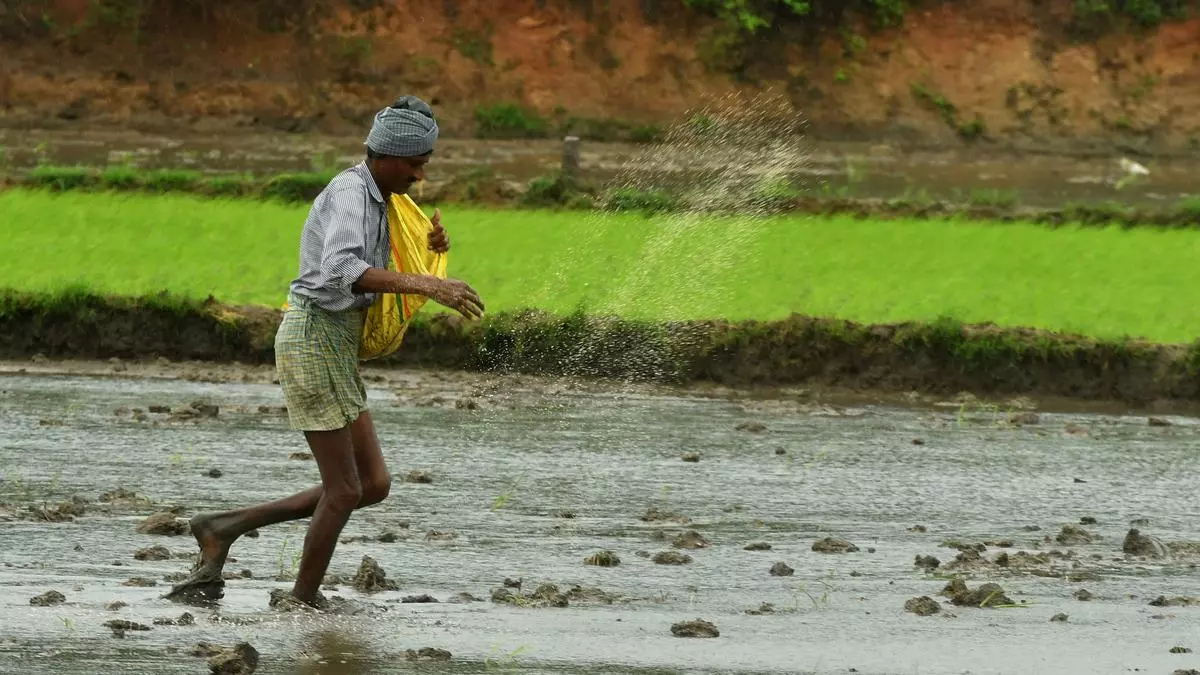Sales of Urea, DAP, Complex rise 57% in Aug; Govt appeals farmers to cut 20% usage of chemical fertilisers
There has been an unprecedented jump of 57 per cent from target in sales of key fertilisers — urea, DAP and complex — during August, when monsoon was 36 per cent deficient across the country. As higher sales have a direct link with subsidy, the government has decided to implement a two-pronged strategy — to reduce usage and check diversion towards non-farm use.
According to official data, against an estimated demand of 51.62 lakh tonnes (lt) of urea, Di-ammonium Phosphate (DAP) and complex (combination of key nutrients N, P, K, S), the actual sales were 80.93 lt between August 1 and September 1, official sources said.
DAP has seen maximum lifting at 14.28 lt against an estimated demand of 7.47 lt, up by 91 per cent, followed by 64 per cent in complex at 17.35 lt against a demand of 10.58 lt. Urea sales registered a 57 per cent surge at 49.3 lt against an estimated demand of 33.6 lt. Only muriate of potash (MoP) sales have dipped last month — by 27 per cent to 1.83 lt from 2.49 lt demand.
Also Read | Fertiliser sales rise 2.4% to 102 lakh tonnes in Q1 FY24
Agriculture Minister Narendra Singh Tomar had earlier raised this issue of increasing sales of chemical fertilisers despite government’s different schemes aimed at lowering the usage. Officials said that estimated monthly demand is arrived at after assessing past sales data and inputs received from States
Union Chemicals and Fertilisers Ministers Mansukh Mandaviya on Tuesday urged farmers to reduce the use of chemical fertilisers and pesticides by 20 per cent in the upcoming rabi season and promised strict action against those who divert the subsidised urea for other usage than farming.
Addressing virtually more than 1,000 farmers at 500 PMKSKs (Pradhan Mantri Kisan Samridhi Kendra) here, Union Chemicals and Fertilisers Ministers Mansukh Mandaviya expressed concern over the excessive use of chemicals fertilisers and pesticides that affect soil fertility and also human health.
“We have to reduce the use of chemical fertilisers. There are alternatives available now like nano-liquid urea, nano-liquid DAP, bio-fertilisers and PROM (Phosphate Rich Organic Manure). I urge farmers to reduce the consumption of chemical fertilisers by 20 per cent in the upcoming rabi sowing season. This should be replaced by alternate crop nutrients,” he said.
Also Read | India fertilizer industry on ‘wait and watch’ mode after China bans urea export
The Minister also asked the staff of PMKSK, the re-named retail outlets of fertiliser companies that are tasked by the government to sell all agri-inputs including seeds, pesticides and implements, to educate farmers about the need to reduce chemicals fertilisers and pesticides.
Mandaviya also warned dealers and fertiliser companies against the diversion of highly subsidised urea to industries. “We have adopted a zero-tolerance policy against diversion of agriculture grade urea to industries. A detailed action plan has been chalked out to crack down on diversion,” the Minister was quoted in a statement released by the Fertiliser Ministry.
There were past instances of diversion of agriculture-grade urea to industries that make resin/glue, plywood, crockery, moulding powder, cattle feed and industrial mining explosives as after subsidy, the neem-coated area costs farmers Rs. 266/bag of 45 kg.
